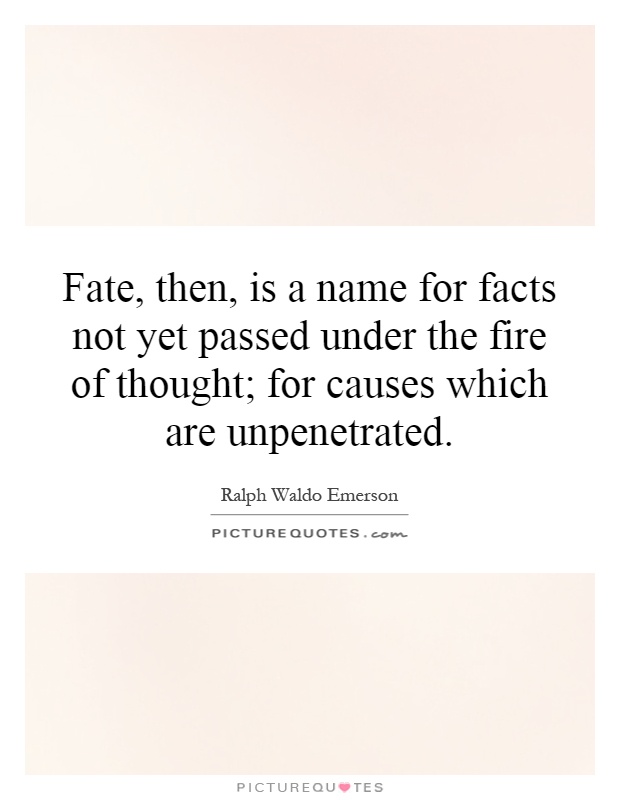Fate, then, is a name for facts not yet passed under the fire of thought; for causes which are unpenetrated

Fate, then, is a name for facts not yet passed under the fire of thought; for causes which are unpenetrated
Ralph Waldo Emerson, a prominent American essayist, poet, and philosopher, was known for his transcendentalist beliefs and his exploration of the interconnectedness of nature, humanity, and the divine. In his essay "Fate," Emerson delves into the concept of fate and its relationship to human thought and understanding.Emerson begins by suggesting that fate is a term used to describe events and circumstances that have not yet been fully examined or understood. He posits that fate is a collection of facts and causes that have not yet been subjected to the rigorous scrutiny of human thought. In other words, fate is a mysterious force that operates beyond the realm of human comprehension.
Emerson's assertion that fate is a name for facts not yet passed under the fire of thought speaks to his belief in the limitations of human understanding. He suggests that there are forces at work in the world that are beyond our ability to fully grasp or explain. These causes are unpenetrated, existing beyond the reach of human reason and logic.
Emerson's exploration of fate in this context is deeply rooted in his transcendentalist philosophy, which emphasizes the interconnectedness of all things and the presence of a divine, universal spirit. He believed that there is a higher power at work in the world, guiding and shaping the course of human events. This belief in a higher power is reflected in his conception of fate as a mysterious force that operates beyond human control.
Emerson's musings on fate invite us to consider the limits of human knowledge and understanding. He challenges us to confront the mysteries of the universe and to acknowledge the existence of forces that are beyond our comprehension. In doing so, Emerson encourages us to embrace the unknown and to approach the world with a sense of wonder and humility.












 Friendship Quotes
Friendship Quotes Love Quotes
Love Quotes Life Quotes
Life Quotes Funny Quotes
Funny Quotes Motivational Quotes
Motivational Quotes Inspirational Quotes
Inspirational Quotes